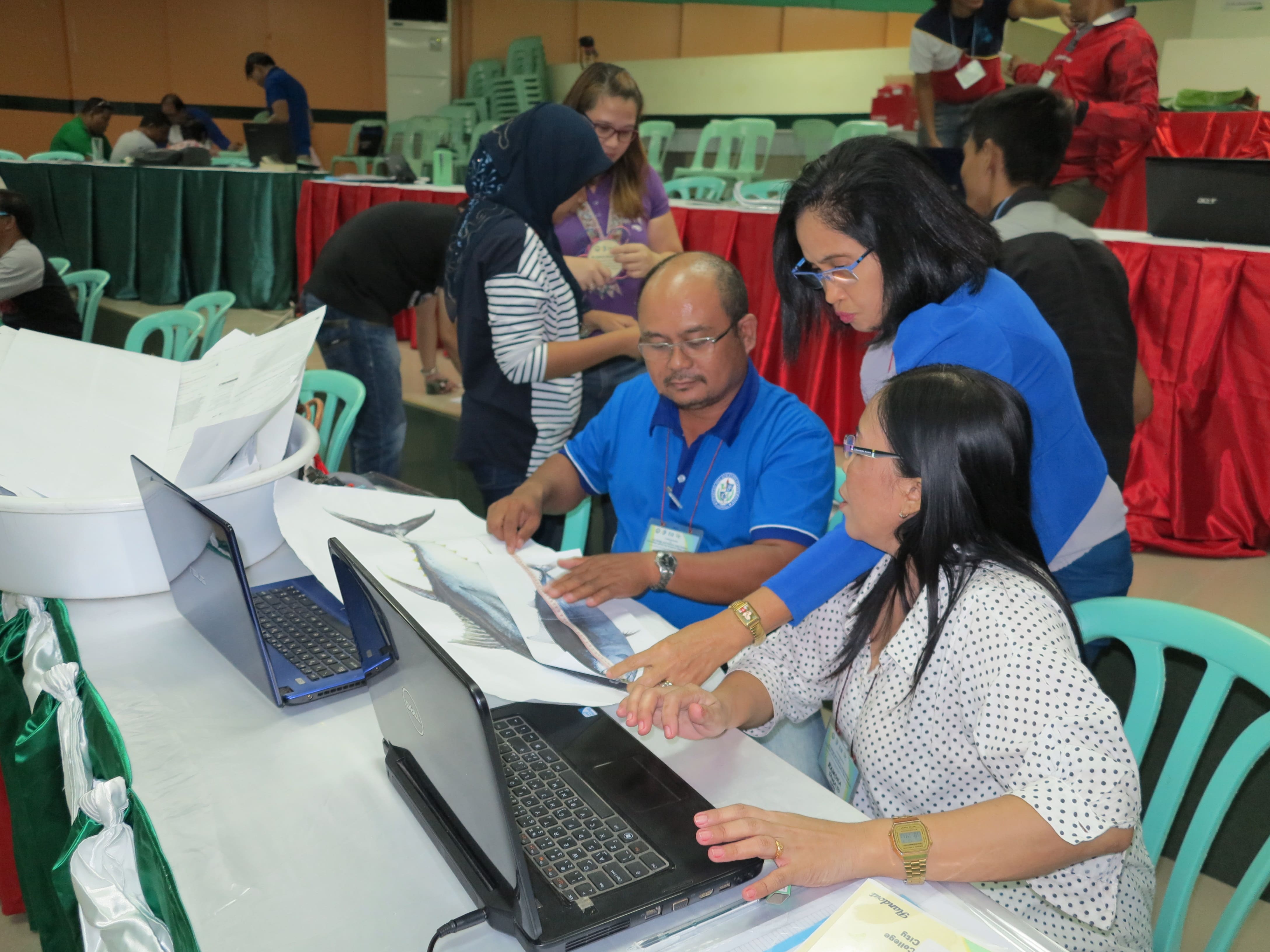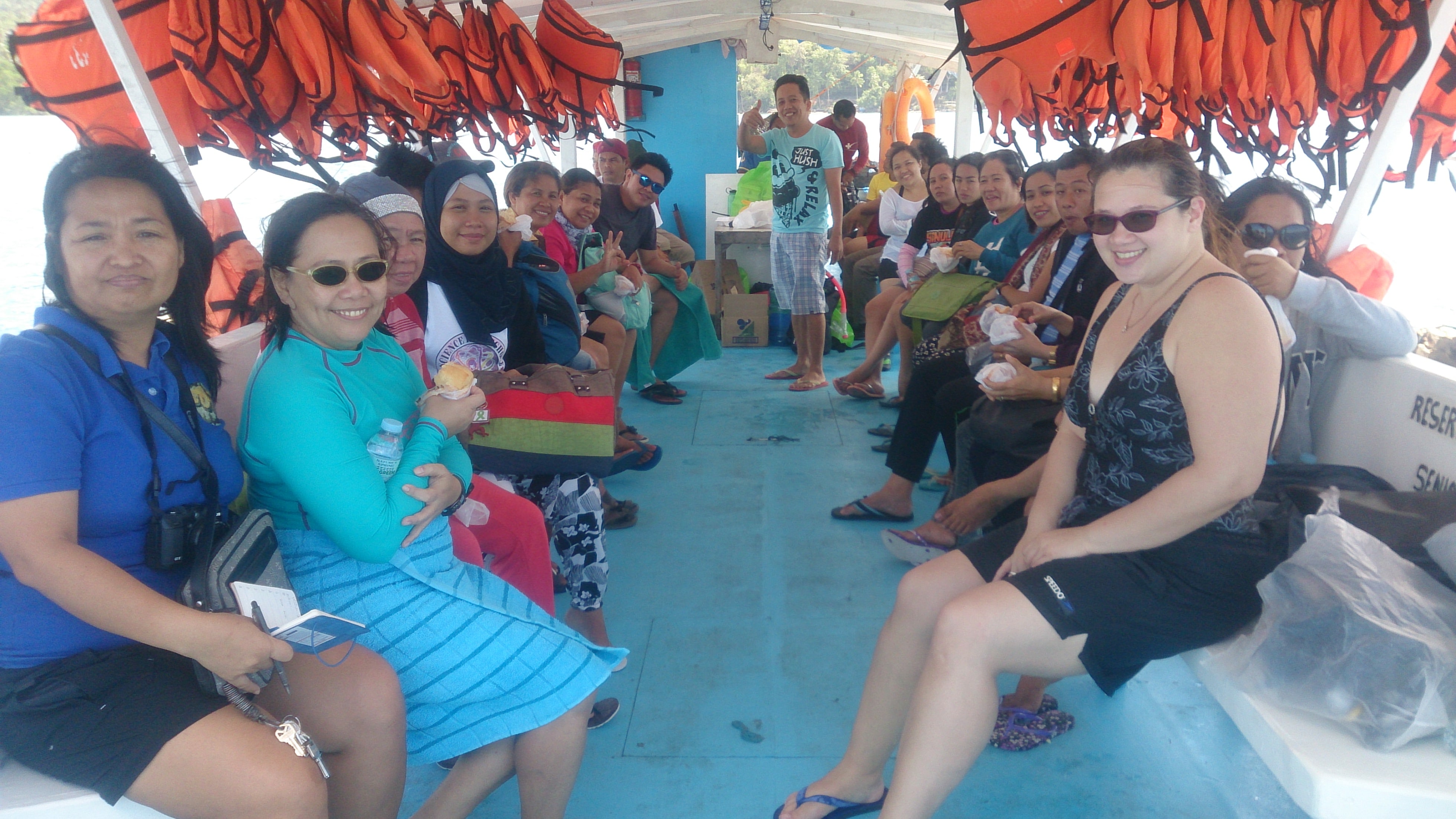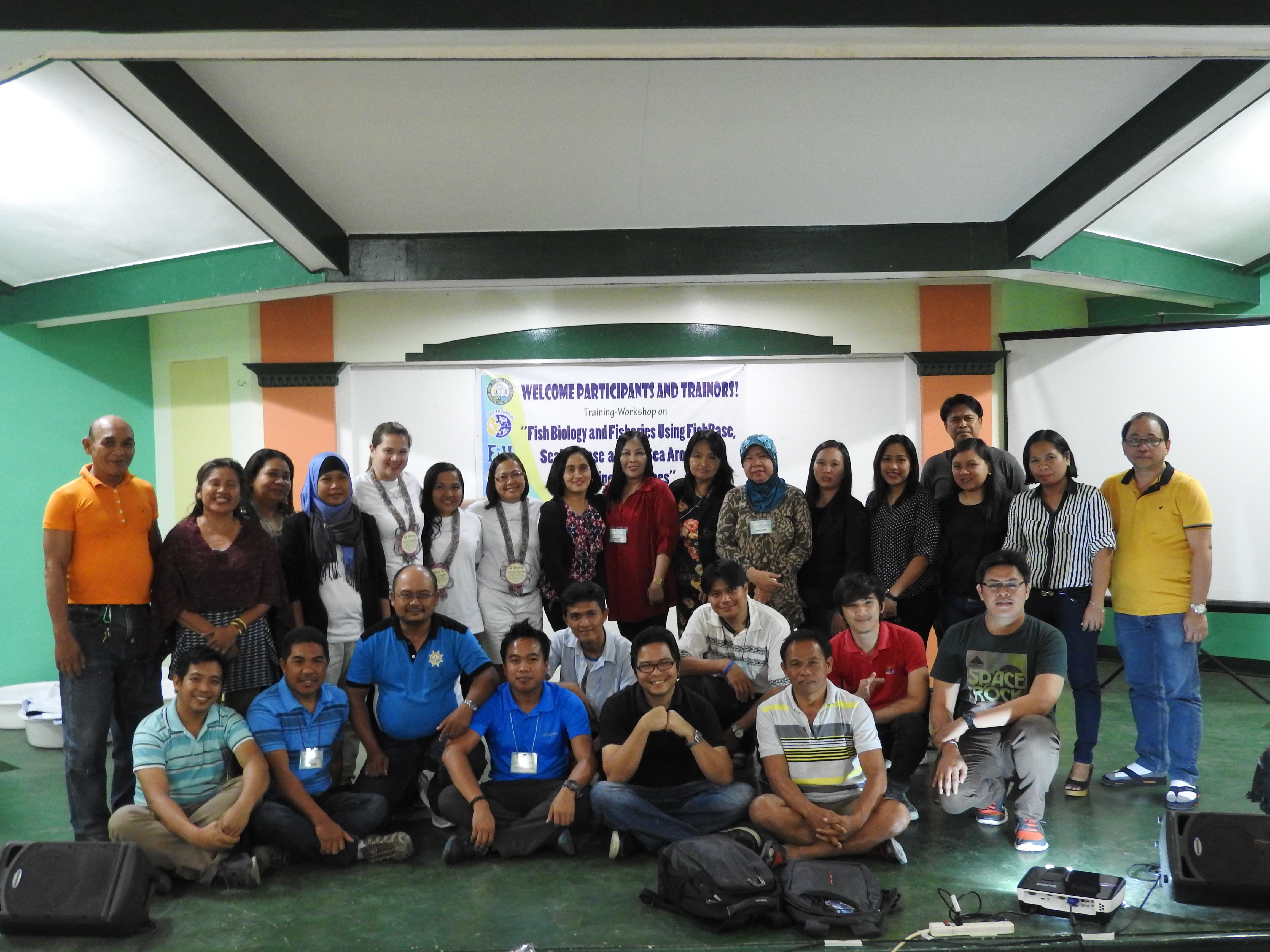In early March teachers, marine biologists, and fisheries biologists from the Philippines descended upon the Davao del Norte State College in Panabo City, Philippines, to take part in a three day training workshop run by the FishBase Information and Research Group (FIN) and the Sea Around Us.
The workshop aimed to train the participants to better understand fish biology and fisheries management, using tools like FishBase, SeaLifeBase, and the Sea Around Us. It was sponsored by the Bureau of Fisheries and Aquatic Resources Region 11, and organized by the Davao del Norte State College.

On the first day, they attended lectures on fish biology and took part in a “banyera” (i.e., fish landing bucket) exercise. This involved using FishBase’s quick identification tool to identify the types of fish in their buckets, and then measuring these samples for standard, fork and total lengths to obtain weights — using FishBase’s length-weight relationships in order to estimate the total weight of the bucket.
On the second day participants took to the ocean, boating to Samal Island, where they visited a marine protected area (MPA) that protects four endangered species of giant clams. They were able to see how research on the growth, survival, and spawning of these four clam species resulted in conservation efforts.

Then, on the final day, participants learned the importance of maintaining correct fisheries statistics and were introduced to the Sea Around Us database of marine catches.
Throughout the three day workshop participants learned to use different tools to help inform fisheries management.
“There was a general agreement that the monitoring of catch by local government is paramount in being able to provide management options,” said Deng Palomares, a workshop leader, and a senior scientist with the Sea Around Us.

While the workshops were intense, and many topics were covered, Palomares believes some critical and practical information was conveyed.
“Overall we got an important message through: being empowered to understand the consequences of bad fisheries statistics can only be a good thing. As one of the participants said, ‘We need to go forward in little steps. Assuring that our constituents and colleagues understand the processes and techniques properly, so we can implement fisheries monitoring correctly.'”

